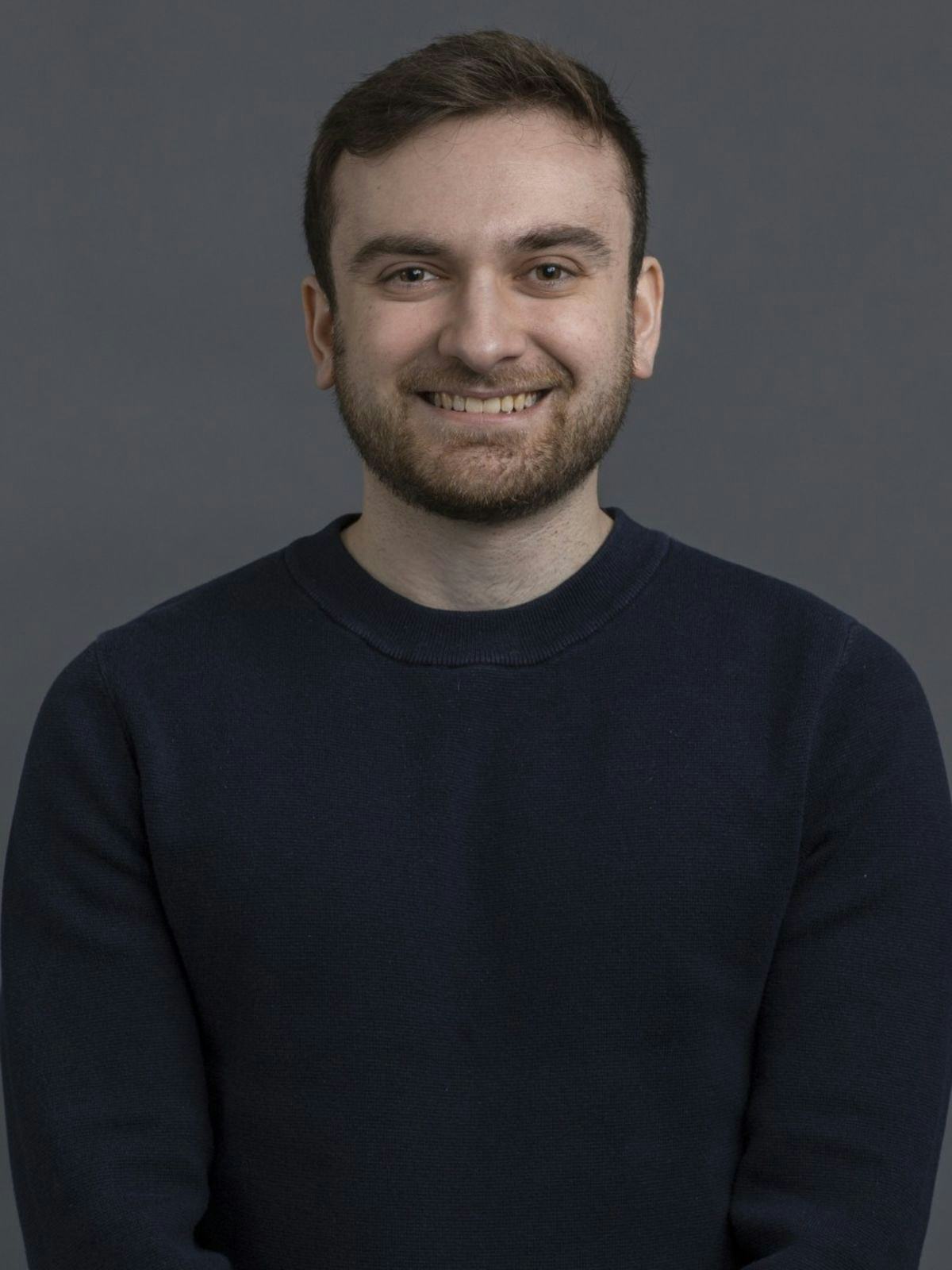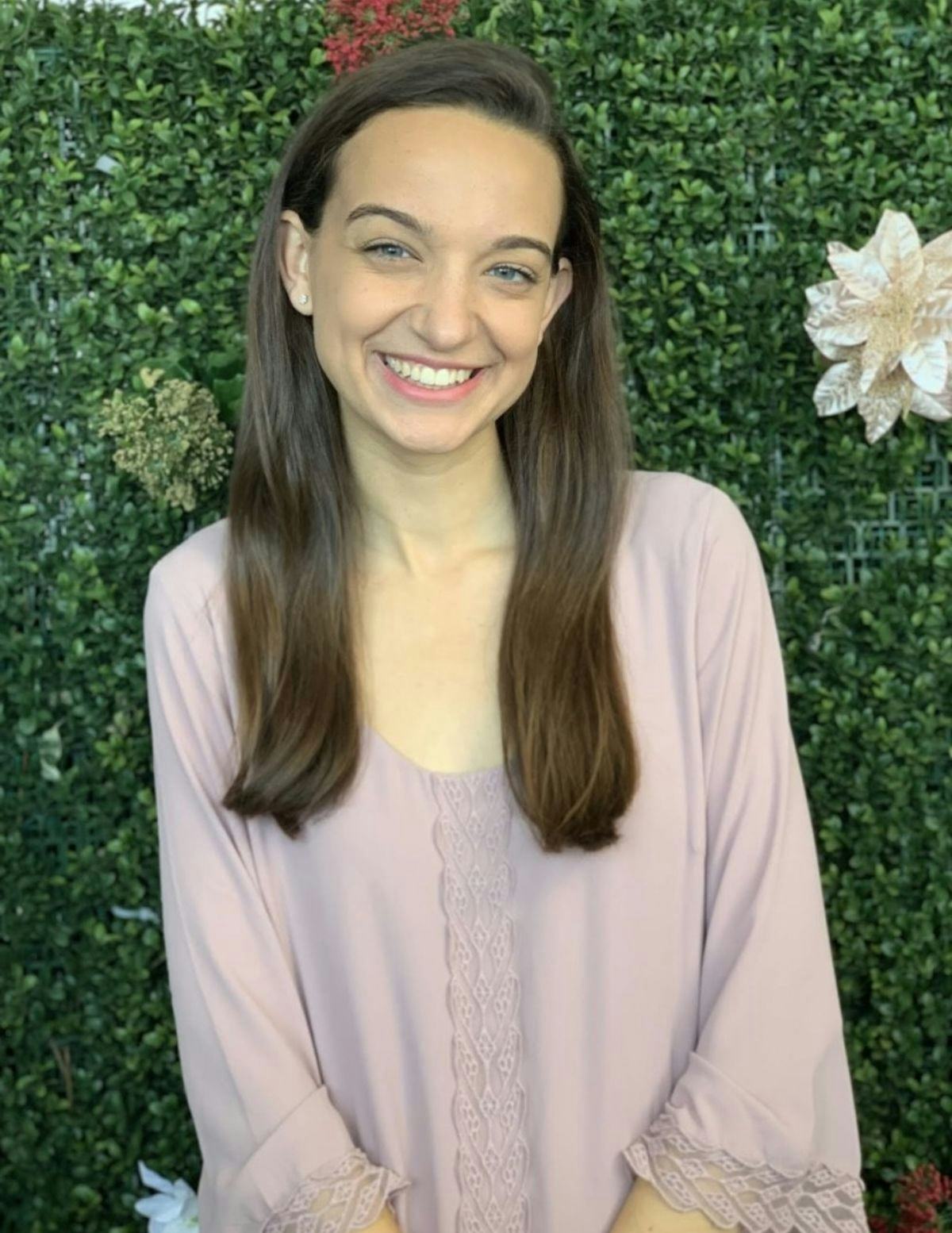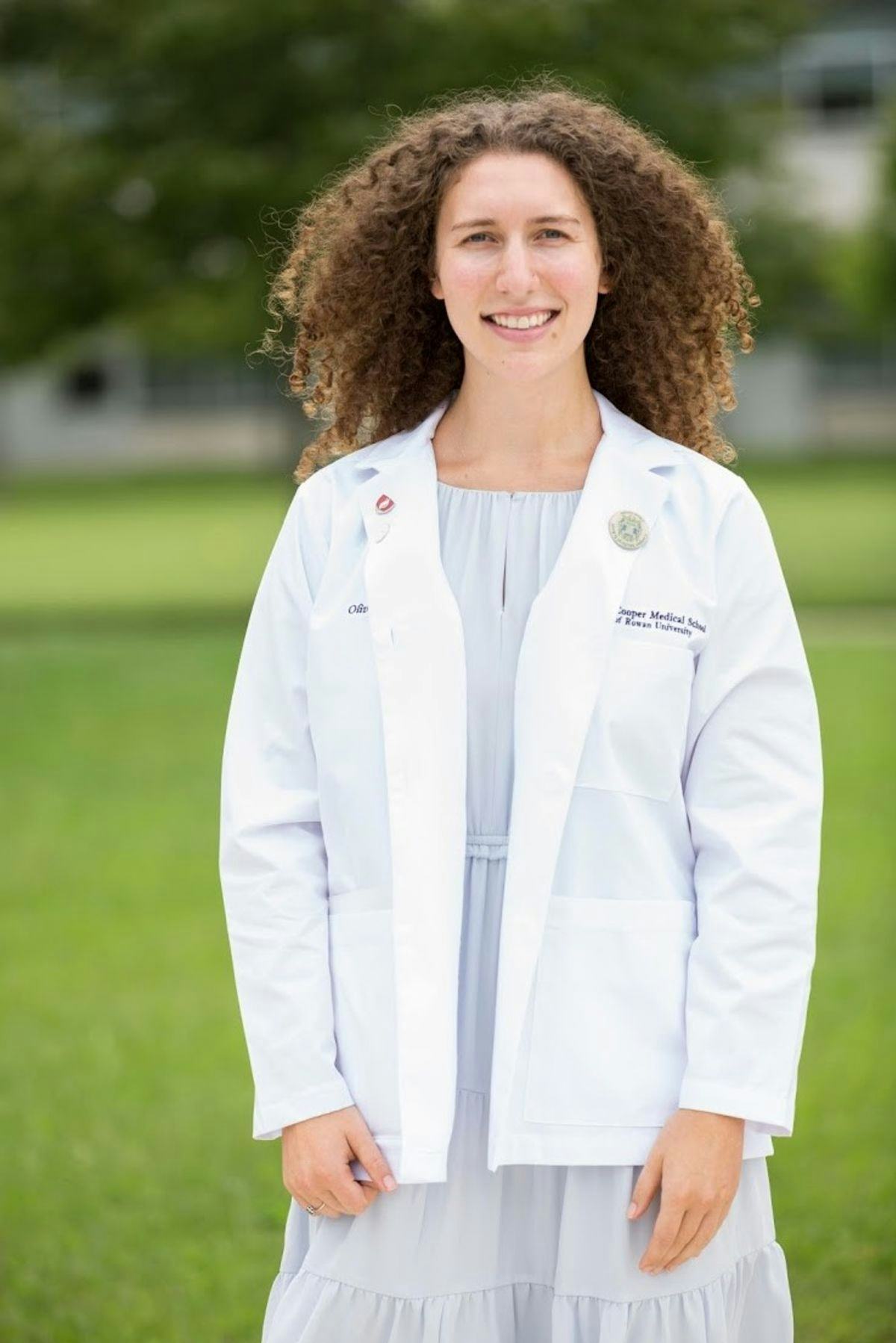Stevens Biology and Chemical Biology Programs Boast 100% Student Acceptance Rate to Medical Schools
With strong preparation in science, research, and hands-on experience, Stevens graduates are a tier above competing medical and dental school applicants
Although Stevens is best known for its science and engineering programs, students in the Department of Chemistry and Chemical Biology (CCB) are enjoying remarkable entrance rates to top medical schools and hospitals, including a 100% acceptance rate in the 2019-2020 academic year.
At Stevens, a broad-based education with a strong core and opportunities for focused, hands-on experience are paramount in the undergraduate curriculum. Students are not only immersed in their desired educational track; the curriculum also trains them to understand how their education fits into the bigger picture—equipping Stevens graduates with the knowledge and experience that is highly valued by many medical schools.
Other students have been admitted to osteopathic medicine, dental, and optometry programs.
Rigorous preparation
CCB alumnus Joshua Ross graduated from Stevens in 2018 with a degree in chemical biology and is currently a medical student at the New York University (NYU) School of Medicine—where the acceptance rate is just 1.6%, as compared to the national average medical school’s acceptance rate of 7%. With his Stevens education, he felt well-prepared for medical school.
“I think that the biggest part of my studies at Stevens that has been adventitious is the different mindset that I got,” he said. “Stevens, being a predominantly engineering school, incorporates that kind of big-picture thinking into all classes, even the ones that are not strictly engineering. I have carried that out with me, where even in medicine, where we initially start by learning the pathophysiology of all of the organ systems, by thinking about how a change in a certain variable in one area in the body has a multitude of effects.
“This more macro view has really paid dividends while working on the wards, as even if someone comes in for one specific problem, the way to solve it often involves a multitude of areas of the body; and having this insight has helped me better care for patients.”
Isabella Biesty, who studied biology and graduated from Stevens in December 2019, is currently enrolled at the NYU College of Dentistry pursuing a D.D.S. degree. She knew she wanted to become a dentist from the day she got braces. “I was uncomfortable with my crooked smile and fascinated that my orthodontists made me feel like a new person,” she related.
She agrees that her Stevens education prepared her well for this next step in pursuing dental school. “Dental school is rigorous!” she said. “Stevens definitely prepared me for the workload I would face, and I am still using some studying techniques from my classes. The small class sizes of the department also made me feel like I really connected with the faculty throughout my four years, giving me a great support system.”
Olivia Schrieber obtained a B.S. in chemical biology with a minor in medical humanities at the Schaefer School in 2018. Today she is pursuing an M.D. degree at Cooper Medical School of Rowan University, located in Camden, NJ. As a child, she was enthralled by her father’s stories about his work as a physician in the emergency room, and her education at Stevens solidified her resolve to follow her dreams of becoming a medical doctor.
“I originally entered Stevens as a chemical engineering student, but quickly realized that my mind was not wired as an engineer’s is,” she said. “And so, I made the switch to chemical biology, and I never looked back! I gained such an appreciation for chemistry and biology at the anatomic and microscopic levels, which is so important to a future physician. If you don’t understand what happens on the nanoscale, then it will be difficult to appreciate illness on the human scale.”
Preparing students for success in healthcare requires a rigorous curriculum in the sciences and the humanities, paired with research and direct healthcare experience. This triad—a strong curriculum, research, and direct experience—sets apart Stevens graduates who aim to enter the healthcare fields.
A record of success
Of the department’s recent 100% acceptance rate, Patricia Muisener, teaching associate professor and associate chair of CCB, said, “Our students’ successes each year are always both inspiring and impressive.”
According to Muisener, all nine CCB students who applied to medical and dental schools this year were accepted. Three biology majors (class of Spring 2019) were all accepted, two into M.D. and one into an M.D./Ph.D. program, four chemical biology majors (one class of Spring 2020; and three class of Spring 2018) were all accepted into M.D. schools, and two students (one class of Fall 2019 and one class of Spring 2020) applied to dental school and were both accepted: one to New York University and one to Rutgers University.
This compares to an average of 41% acceptance rates across other colleges and universities.
Just as impressive as the acceptance rates, these students are also being accepted into top medical schools like Rutgers New Jersey Medical School, Robert Wood Johnson Medical School, New York University, Hackensack Meridian School of Medicine, Case Western Reserve School of Medicine, Cooper Medical School of Rowan University, and Drexel University School of Medicine.
Exceptional opportunities in education and research
Nuran Kumbaraci, CCB associate professor, explained that Stevens students are particularly competitive applicants to medical and dental schools due to the exceptional background in science that Stevens offers. “Medical school requires competence in science. I think Stevens’ strong science and technology background helps,” she said.
Kenny Wong, teaching associate professor and biology program director, noted that alumni often return stating that the upper level courses at Stevens provided them with excellent preparation for the rigor of their first-year medical school courses.
Often, traditional biology programs lack the research opportunities that set Stevens graduates apart from other applicants. Muisener explained that biology, chemical biology, and chemistry majors at Stevens gain that critical experience by completing at least one year of research as a required component of their undergraduate studies.
“Research is absolutely necessary,” Kumbaraci emphasized. “Research is the application of your basic knowledge to solving a problem—and you can only do that with research. You can memorize facts, equations, topics, words—but now apply them to a problem that impacts humans or a human who is having a problem. Most research, if you look closely at it, translates into helping humans… So if students can apply knowledge to solving problems in biomedical fields, they are already ahead of other applicants.”
Ross became involved in research early on in his Stevens education at the Center for Healthcare Innovation (CHI), where he remained involved for three years. “Through it, I was able to embark on a research journey...getting funding and mentorship along the way,” he said. “Being so young and having the ability to learn from amazing professors, as well as collaborating with world-class hospitals in the northern New Jersey area, really made a difference in my life and helped me see the different possibilities in medical research and what could be accomplished.”
Kumbaraci explained that coursework in the humanities—such as writing and communications, presentations, sociology, and psychology—is built into the CCB curriculum, and is meant to train students in skills that are essential in the medical field. She was also quick to speak to the high-caliber quality of the department’s students, who tend to be achievers and natural leaders. “I’d say that we have to give credit to the students, because they are the ones who get accepted,” she said. “They channel their potential.”
Direct experience
Kumbaraci, Muisener, Wong, and other CCB faculty encourage students to find and keep a record of activities they are interested in and excel in, which allows them to differentiate and distinguish themselves from other candidates. Grades are important, but equally critical are extracurricular activities that allow students to gain experience, establish connections, and demonstrate their skills and strengths.
Muisener stated that students have a wealth of opportunities for involvement in extracurricular activities related to the medical field, such as volunteering at the Hoboken University Medical Center or working as a medical scribe. Some students choose to pursue becoming emergency medical technicians (EMTs), preparing them for direct emergency experience even as undergraduates.
One such experience presented itself in September 2016, when a Hoboken commuter train slammed into the crowded Hoboken train station at full-speed during rush hour, killing one person and injuring 114 others. Stevens CCB student members of the Hoboken Ambulance Corps responded immediately to help, receiving permission to leave class to provide critical assistance amid the chaotic scene at the station.
“These are the types of extracurricular activities that give them real-world experience,” said Kumbaraci. “We don’t want tragedies, but when they happen, we want our students to get involved.”
Even during the pandemic, undergraduate students volunteered with the Hoboken Ambulance Corps, along with Ross, and were able to garner invaluable hands-on experience working with COVID-19 patients.
Additionally, CCB is ensuring that students can still participate in research and extracurricular efforts by offering more online research opportunities, such as computational chemical and biological research. For instance, Wong created a workshop series this fall focusing on computational tools for chemists and biologists.
“We are still providing the research requirement; we are providing it during COVID-19,” Kumbaraci emphasized. “COVID-19 has put a lot of stress on everybody. Preparation for medical school also puts a lot of stress on students, but we help support and prepare them.”
As for Biesty, she found that Stevens’ proximity to industry enabled her to pursue internships. “Stevens was in the perfect location for me to be able to shadow a local Hoboken pediatric dentist, as well as venture into the city for a summer internship at New York Presbyterian's Weill Cornell Medical Center in the Oral & Maxillofacial Surgery & Dentistry division,” she said.
Resources for pre-med students
Stevens offers key resources for pre-med students to help them prepare for their future.
Stevens maintains a Health Professions Advisory Committee (HPAC), co-chaired by Muisener and Kumbaraci, consisting of faculty and staff members in various schools and departments across Stevens. HPAC members advise students who intend to enter medical professions, from the first day they arrive at Stevens. Members advise students regularly; and every spring they meet with applicants for a panel-style mock interview process. This multipurpose experience serves as an advising session and helps participants practice for their continuing education interviews. Additionally, the committee compiles information and writes letters of recommendation to support their applications to professional schools. This year the interviews were held on Zoom, due to social distancing protocols.
Another resource is the Stevens Health Professions Club, which is a student-run organization that provides educational support and volunteer opportunities for the Stevens premedical community. The club, mainly advised by Kumbaraci, also organizes visits to medical schools and coordinates MCAT preparatory opportunities and other events, and has established a peer mentor program this year.
The pre-med honor society, Alpha Epsilon Delta (AED), is established on campus. This national health pre-professional honor society and service organization aids students who are committed to healthcare. The New Jersey-Beta chapter of AED was established in 1992 at Stevens. The chapter, advised by Kumbaraci, organizes events that provide students with experience in philanthropy, scholarship, and social causes with the goal of promoting the importance of healthcare on campus and throughout the Hoboken community. Over 250 Stevens students have been inducted to date.
Schreiber noted that Stevens provided a helpful support network that was crucial in preparing her for medical school. “Knowledge will only get you so far,” she said. “To me, it was the people of Stevens that truly supported me and ensured that I was ready—intellectually and mentally—for the rigors of medical school… Successfully matriculating at a medical school in the United States requires significant mental fortitude, but for me, I needed a network of support in order to be successful.”
Strong alumni involvement
One tell-tale sign of a strong program is alumni involvement. The Stevens CCB alumni are highly active and stay in touch with the Schaefer School of Engineering and Science. “Every year, various alumni return to Stevens and meet with students to provide tips on applying to medical school,” Muisener said. “They discuss what worked for them and what didn’t. Their stories inspire tomorrow’s medical students, who are well-prepared by their Stevens education.”
Biesty said that she would encourage other students hopeful of entering healthcare to “never ever give up.” “If this is your dream then the fulfillment and excitement of every day will get you through to the end,” she said. “I would also definitely advise to take information and opinions from everyone you meet. They all have different experiences that can help you in your own process, so don't be afraid to ask for help.”
Looking back on his years at Stevens, Ross said, “The best advice that I can give to Stevens students who hope to go to medical school is simply to focus on what you are passionate about. Almost anything that you do can be applied to medicine in one way or another, and as you are going to be spending the rest of your life in the medical field, explore everything that Stevens has to offer. It is important to bring your own special talents and viewpoints to medical school; and college is a free time to explore everything, so take advantage of that.”





